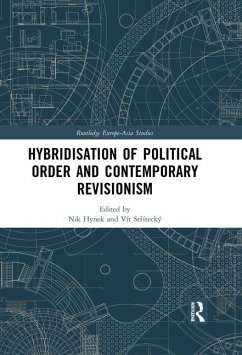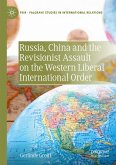This volume argues that contemporary political and security revisionism should not be considered a homogenous attack against the international order but rather a bag of tailor-made strategies to exploit opportunities found in various, highly localised contexts. Scholars with backgrounds in Security Studies, Area Studies, International Relations and Political Theory are brought to examine revisionist tendencies in Central Eastern Europe, Post-Soviet Space, China and the Transatlantic Space. In doing so, they try to remedy the existing disciplinary separatism, or 'policing', which has obfuscated any theorisation of the connections between international and domestic politics for many decades. Part of the analytical focus is on novel phenomena, especially the utilization of cyberspace and new social media and technological innovation. One of the conclusions of this volume is that the rise in contemporary revisionism shows the oft-forgotten importance of the first image of international politics: political leaders, in other words, do indeed matter. The fact that they matter is only reinforced when they represent regional or even great powers, and especially revisionist regimes and states with the propensity to produce complex effects. The chapters in this book were originally published as a special issue of the journal Europe-Asia Studies.
Hinweis: Dieser Artikel kann nur an eine deutsche Lieferadresse ausgeliefert werden.
Hinweis: Dieser Artikel kann nur an eine deutsche Lieferadresse ausgeliefert werden.








